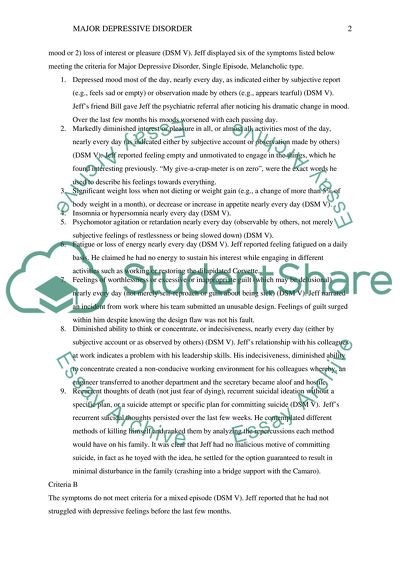Cite this document
(“Major Depressive Disorder Case Study Example | Topics and Well Written Essays - 1500 words”, n.d.)
Retrieved from https://studentshare.org/psychology/1638361-major-depressive-disorder
Retrieved from https://studentshare.org/psychology/1638361-major-depressive-disorder
(Major Depressive Disorder Case Study Example | Topics and Well Written Essays - 1500 Words)
https://studentshare.org/psychology/1638361-major-depressive-disorder.
https://studentshare.org/psychology/1638361-major-depressive-disorder.
“Major Depressive Disorder Case Study Example | Topics and Well Written Essays - 1500 Words”, n.d. https://studentshare.org/psychology/1638361-major-depressive-disorder.


